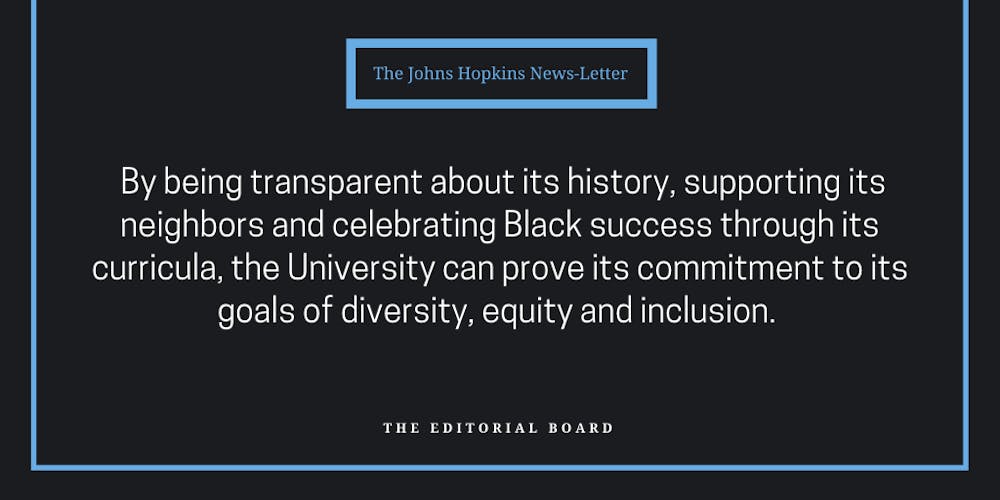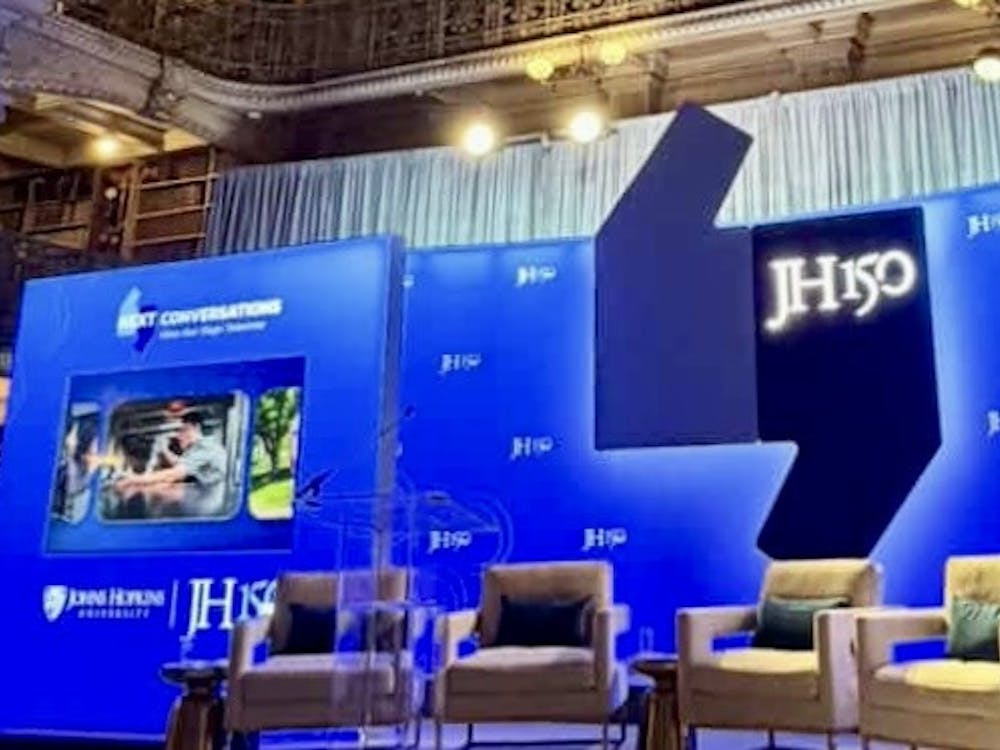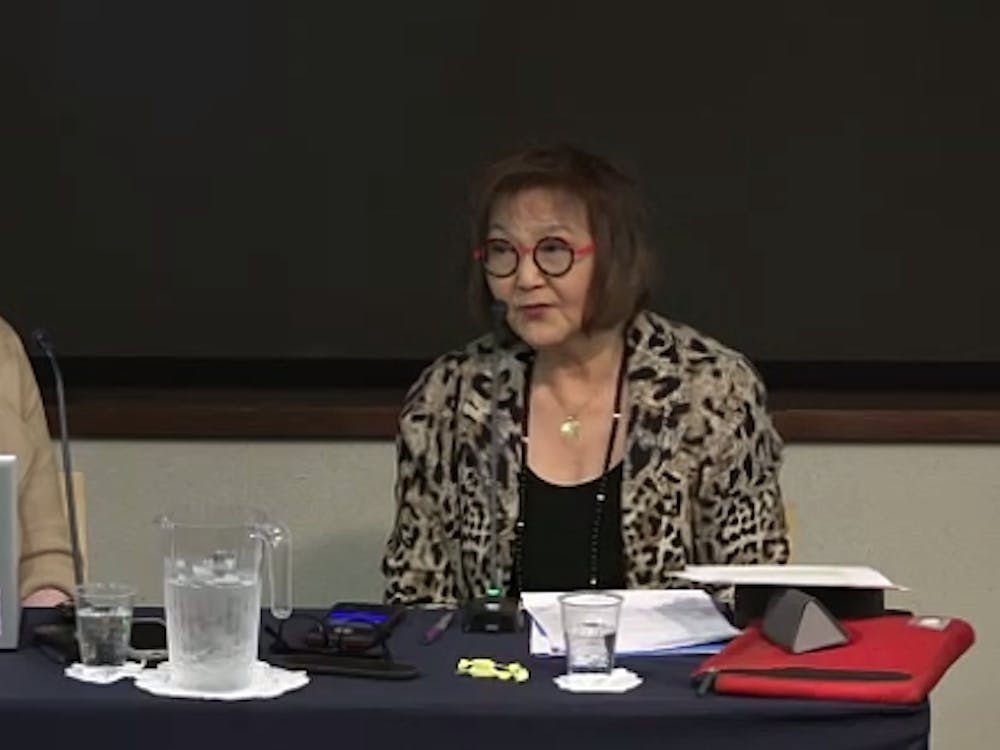February is Black History Month — as students, we should take this time to celebrate the achievements and heritage of Black people at Hopkins and beyond. As residents of Baltimore, we can support local Black-owned businesses and learn about Black history and culture in the city.
The University must also do more to engage with these celebrations and address the racism in its past.
Hopkins has already committed to renaming campus buildings in honor of historically marginalized and underrepresented people in the institution’s history as part of the Diverse Names and Narratives Project. The two towers of Charles Commons and the Hopkins Outpatient Center, in particular, will be renamed after trailblazing Black figures. This is a step in the right direction.
Renaming buildings, however, is no substitute for engaging in dialogue with the members of the city that the University has long exploited and ignored. Even in renaming, Hopkins sometimes fails to follow through — the University hasn’t updated us on the progress of a renaming project in honor of Henrietta Lacks since 2019.
We acknowledge University initiatives such as publishing its Second JHU Roadmap on Diversity, Equity and Inclusion. However, recognizing problems is not the same as actualizing solutions. From supporting the family of Henrietta Lacks to endorsing the Red Line, the University could be doing so much more.
One of the roadmap’s goals includes “investigating and illuminating our past so it may shape our present and future actions.” We support this idea. The University must make the history of our institution accessible and transparent to students.
One way to do this would be educating freshmen on these matters as soon as they arrive for orientation. However, education on these topics cannot stop once classes start.
Beginning in the fall of 2022, all freshmen in the Krieger School of Arts and Sciences (KSAS) will be required to take First Year Seminars.
According to the University, these seminars will be used to “set the tone for the undergraduate experience.” Hopkins can take advantage of these seminars as an opportunity to contextualize the undergraduate experience through the lens of the University's troubled history. Moreover, these courses must be mandated University-wide—this awareness can’t be limited to KSAS.
Some of the events new students need to know about didn’t even happen that long ago.
During the Garland Hall sit-in of 2019, Hopkins affiliates and members of the Baltimore community protested the University’s contracts with both U.S. Immigration and Customs Enforcement and its proposed private police force.
Prior to the sit-in, Garland Hall housed student affairs offices and bustled with activity. The University has since dispersed these services around campus. Now, Garland sits forgotten on Decker Quad, used only by a handful of University officials as increasing numbers of new students rush around it, completely unbeknownst of its history. By the time the University’s two-year pause on its private police force is complete, those who were freshmen during the sit-in will have graduated.
When classes graduate and leave the nest, new students are unable to learn from their predecessors and continue the pursuit for change. This exemplifies the University’s inaction in preserving institutional memory, something which strangles its chance for real change.
In spite of this, some students are working to make sure we don’t forget. In a recent letter to faculty at the Bloomberg School of Public Health, students stood in solidarity with Baltimoreans who oppose the formation of the private police force. They also called on Bloomberg leadership to implement anti-racist measures like naming racism as a public health crisis and incorporating this discussion into curriculum.
Hopkins must listen to those advocating for change — not just during Black History Month, but throughout the rest of the year as well. By being transparent about its history, supporting its neighbors and celebrating Black success through its curricula, the University can prove its commitment to its goals of diversity, equity and inclusion.





